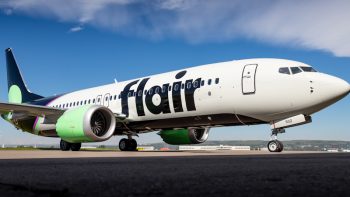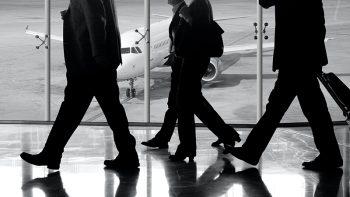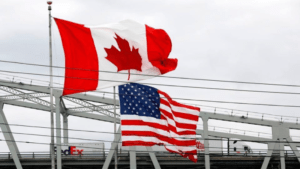New travel numbers suggest Canadians made fewer return trips from the United States last month compared to the same time last year, with a sharp decline in trips by both car and by plane.
Statistics Canada says the number of Canadians returning from the US by car last month was down 31.9% compared to March 2024. That’s a significant increase from February, when car trips from Canada to the States were down 23%.
It’s also the third straight month of decline for Canadian car trips to the US.
Stats Can says return trips by air from the US were down 13.5% last month compared to March 2024. That’s more than five times the percentage from February, when the agency said return air trips from the US were down 2.4% versus February 2024.
By comparison, return air trips to Canada from countries other than the U.S. were up nine per cent in March of this year versus 2024, which suggests Canadians are replacing US trips with visits to other destinations. Experts have said they see more Canadians choosing trips to Europe, Mexico and the Caribbean these days.
A report by the Travel Health Insurance Association (THIA) of Canada this week found that a sizeable 70% of Canadians intend to avoid travel to the US this year. THIA said the top reasons Canadians are avoiding travel to the US this year include:
– To support Canada during the tariff dispute (57%)
– Because of the political leadership (51%)
– Because the Canadian dollar is too weak (34%)
Frederic Dimanche, Professor/Director, Ted Rogers School of Hospitality and Tourism Management at Toronto Metropolitan University, said he's not surprised.
"The road traffic trend started early this year and is gaining strength," he told Open Jaw. "It takes more time to show decline with flights because of the lag time between purchase and departure. Canadians continue to show their anger at the US administration (first the disrespect with the 51st state comments, then the tariffs), and to top that off, people are using the poor exchange rate CAD/USD to justify postponing travel to the USA.
"Finally, the increasing concern that crossing the border may be riskier or more bothersome than it was is the cherry on the cake. I think it will get worse before it gets better," Dimanche said.
Canadian airlines have been steadily reducing their exposure in the US and adding flights to Europe and Asia. The government of Canada last week updated its advisory to warn residents travelling to the U.S. that they may face scrutiny from border guards and the possibility of detention if denied entry.
It’s not just Canadians who appear to be bypassing US travel. Axios Research recently stated that the number of visitors passing through customs at the 10 busiest US airports fell by nearly 20% in March of 2025 vs 2024.
“The findings suggest a sudden reluctance to visit the US isn’t a purely Canadian phenomenon, and should sound alarm bells for the country’s $1 trillion-plus travel industry,” Axios wrote.
The US Travel Association earlier this year said a loss of 10% of Canadian visitors would cost the US economy $2.1 billion and also cost 14,000 jobs in the States. It appears the damage is greater than that from Canada, also from other countries around the world.
Border cities such as Buffalo, Detroit and Seattle/Bellingham, Washington are particularly vulnerable to a drop in car traffic from Canada.
US President Donald Trump on 09APR said he’s putting a pause on so-called reciprocal tariffs on many countries, but it’s unclear if that decision will ease concerns from potential foreign visitors.
Adding fuel to the Canadian fire is that new regulations approved by Trump earlier this year - regulations that require Canadians and other visitors to register with the US government if they intend to stay more than 30 days - come into effect on 11APR, 2025.
“Even snowbird travellers are going to be treated like aliens,” said Marty Firestone, president of Toronto-based insurance firm Travel Secure Inc.
The lack of enthusiasm for the land of Uncle Sam should be a plus for Canadian domestic travel.
“I think what we’re seeing right now is a real sense of patriotism,” Beth Potter, president and CEO of the Tourism Industry Association of Canada (TIAC), told the Toronto Star. ”(Canadians) are focused on supporting Canadian businesses, and that includes Canadian tourism.”
Potter added that the TIAC has observed a 19 per cent increase of Canadians intending to travel domestically since the start of the trade war






